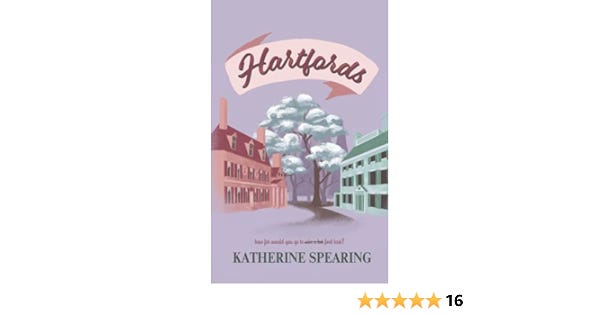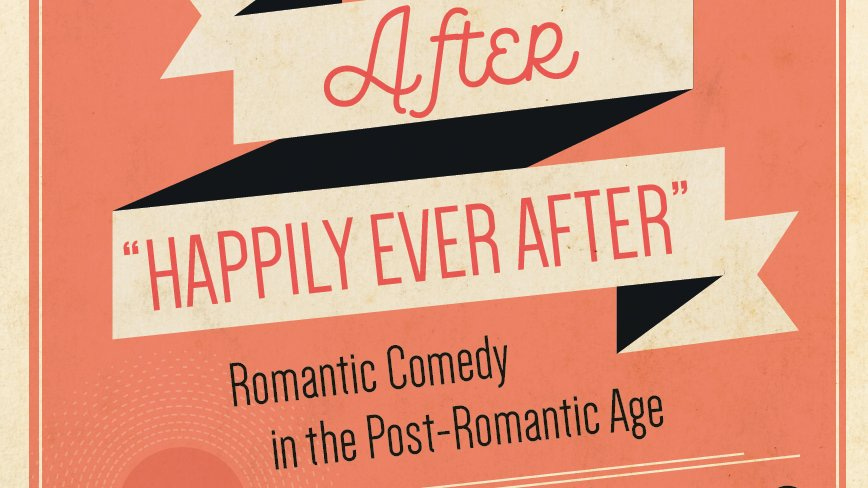How 90s and 00s Rom-Coms Popularized Purity Culture Messaging
And how we are unlearning and relearning how to be relational people.
I’m not a film guy. I think I’ve seen about 30 movies in my entire life, one third of which were Nora Ephron-infused romantic comedies that I watched with my ex, who loved the genre.
I hated the genre. Julia summarized my loathing in this week’s episode of Sexvangelicals:
Romantic comedies tend to repackage the same messages around gender, sexuality, and relationships that the church perpetuates.
For example, that women are emotionally motivated and driven for those deep types of connections. They are fairly asexual in nature. Men are these sexual predators who have uncontrollable erotic urges. And the story tends to take some form of a coupling process in which the couple gives some language to pushing against these norms, as you've already described, for example, the super sexually driven man becoming more domesticated, finding sexual fulfillment in one woman. But there isn't actually any different scripts that are offered.
I loathed romantic comedies because I lived in a romantic comedy. Christian colleges are romantic comedies, with administrative systems telling students that they are successful if they get married. Our relationship developed as a romantic comedy; a high volume of intellectual stimulation whose emotional connection was catalyzed by the “will they/won’t they”. The sexuality of my marriage developed as a romantic comedy, keeping the sexuality hidden but the emotional “fallout” supreme: an oppressive cycle of attraction, shame, and doubt.
The more that I write and reflect, the more I realize how early in my life I wanted out of this system where women and men are controlled by specific gender stereotypes.
Admittedly, my experience of “the genre” was infused by Nora Ephron’s traditionalist views on gender and relationships, which were popularized in the 90s and 00s. But professionally, as a relationship therapist and researcher, and personally, there are fewer things that make me roll my eyes quicker than the phrase “romantic comedy”.
When Julia and I interviewed Katherine Spearing for our Sexvangelicals series Let’s Kick Off the New Year with Spiritual Abuse, we also wanted to talk with her about her fiction writing.
Katherine is the author of Hartfords; a romantic comedy.
Here’s how Katherine describes it in the episode:
“The story is five sisters that no one wants to marry, the oldest sister gets married and then she makes a bet that she's gonna get all of her four sisters married off by the end of the year. And so she and her partner go into this matchmaking game to try and get them married off.
And the reason why no one wants to marry these five sisters is because in 1840s New England, these women were not raised by their parents to be the stereotypical women. They were raised to have professions. They were not raised to only think about marriage. They were raised to not orient their lives around men. And in that time period, that would be why someone wouldn't be eligible. They would not be someone that people would want to marry.
And I experienced that too in the world that I grew up in of not being the person that men wanted to marry and wanted to date because of having just innate qualities that were just my nature, that were not acceptable in this culture.
In preparation for the episode, I read Hartfords.
And it was…good. I enjoyed reading it.
Romantic comedies often reflect the social, cultural, and gender norms of that time. I psychologically motivated myself through the first 50 pages by reminding myself that I was reading about a historical time period. Hartfords is set in the 1840s in the US, when a different kind of Purity Culture was happening nationwide.
Parents played a huge role in the matchmaking process, especially in smaller towns like the setting of Hartfords. Katherine explores how a collaborative relationship between sisters, beyond the role of motivational speaker best friend, and rather than a competitive relationship perpetuated by economics and patriarchal system, can result in each of the women getting what they want. The parents were largely left out of the process.
Romantic comedy authors have to figure out to what extent they want to push back against the larger narratives. There are authors on one end of the spectrum who explicitly reinforce gender and cultural norms. The afore-mentioned Nora Ephron is one of the most egregious committers of this. In each of her films, there’s conversation about how do we want to push back against the cultural norms, but at the end of the day, the characters all fall in line to performing the prescribed gender roles.
Katherine could have gone in the other direction of completing annihilating and transforming the cultural norms of the 1840s. In Hartfords, all of the female characters end up with male partners, so Katherine doesn’t experiment with queerness in the midst of this setting. Had Katherine made one of the characters queer, she would have had to have written a completely different plot of how the community and family deals with homophobia and protects or doesn’t protect the queer member, and she wouldn’t have been able to spend time in a 300 page book on the themes that she does explore.
Power to the authors who do that. But I really appreciate how Katherine finds the perfect blend of pushing back on some of the gender norms without going overboard. This is actually what makes Jane Austen so successful—her writing doesn’t incite social revolution, but the critiques about gender and family that she makes are noticeable enough that her female audience can explore a world in which they can against the boundaries. Katherine finds that sweet spot throughout her book.
Katherine describes her writing inspiration this way:
One of the things that I did was reshaping some of those things that were really important to me. For example, one of the damaging things that I think that we get out of these patriarchal spaces is that the only real relationships men and women can have with each other are intimate relationships or intimate romantic relationships.
I very intentionally created male-female friendships and very intentionally had both the men and the women involved in the matchmaking. It wasn't just a woman thing. They're all doing this together and working together.
And that was very important to me because it expands our view of what intimacy can look like, and we don't have to just have that in the context of a committed, sexual relationship. That doesn't need to be the only way that we interact with men: if we're going to have an intimate relationship with them or not.
I created the world that I wish existed basically at that time period.
Understanding the development and establishment of Purity Culture requires understanding politics and culture from Reagan through George W. Bush, which humorously, few of us survivors of Purity Culture were allowed to participate wholly in as it was actively happening. The world being sinful and such.
The other source that helped me prep for this episode was Maria San Filippo’s After “Happily Ever After”: Romantic Comedy in the Post-Romantic Age.
There were tons of references that I didn’t understand. Again, I’m not a film guy. I can think of about 47 other things that I’d rather do with two hours of my life than sit down and watch a heavily produced piece of art on my TV.
But these two paragraphs smacked me in the face:
“Perhaps we might see these neotraditional narratives [of Nora Ephron and the like] as the cinematic equivalent of the born-again virgin movement that gained momentum among evangelical Christians in the 90s, in which Christian youth had “slipped” were able to regain their status as virgins, and thus their marriageability, by rigorously abstaining from sex for an extended period before marriage…
This neotraditionalism reflects that era’s antifeminist backlash, but was also a response to the economic precarity and social insecurity of neoliberal capitalism. Neotraditional romcoms paper over the dawning disillusionment provoked by the recognition that feminism’s promise of women’s professional and sexual fulfillment was stymied by systemic barriers, persistent inequality, and the impossibility of having it all” (p. 23).
Julia and I are relational therapists who specialize in working with folks who grew up in conservative religious systems. In fact, I would argue that every American who grew up between Reagan and the first year or two of Obama grew up in a conservative religious system, regardless of whether you attended a church or not. (The Clinton years were incredibly socially conservative, despite Bill’s status as a Democrat.)
The first step of working with us typically involves unlearning a host of limiting, unhelpful, often incorrect information about bodies, communication, gender, and the purpose and function of a relationship. The practice of relationship and sex therapy have been the primary guideposts for me and Julia to unlearn and relearn. Katherine describes writing as her process for navigating the unlearning and relearning.
What are things that have guided how you’ve unlearned and relearned the terrible things that we learned about communication, gender, and sexuality in the 80s, 90s, and early 00s? Feel free to share in the comments.
Let’s heal together!
Jeremiah and Julia






